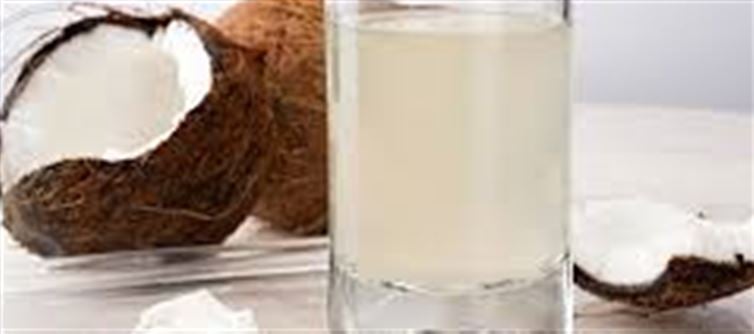
Coconut water is often touted as a natural health drink, praised for its hydration and electrolyte content. While it has many benefits, experts warn that it may not always be safe for kidney health—especially for certain individuals. Here’s what you need to know:
1. High potassium Content Can Be Risky
- Coconut water is rich in potassium, which helps regulate fluid balance and muscle function.
- For people with chronic kidney disease (CKD) or impaired kidney function, high potassium intake can lead to hyperkalemia, causing irregular heartbeat or cardiac complications.
2. Not a Substitute for Water
- While hydrating, coconut water cannot replace plain water, which is essential for kidney filtration and toxin removal.
- Overconsumption may strain kidneys, especially in individuals prone to kidney stones or CKD.
3. Risk for Kidney Stone Patients
- Coconut water contains natural sugars and minerals.
- For some people, high intake may contribute to calcium oxalate stone formation, especially if fluid intake from other sources is low.
4. Hidden calories and Sugar
- Packaged coconut water often contains added sugar, increasing caloric load.
- Excess sugar can worsen obesity, diabetes, and kidney stress.
- Always check labels and opt for fresh, unsweetened coconut water.
5. Electrolyte Imbalance Concerns
- While electrolytes are beneficial, too much potassium, magnesium, or sodium can disrupt body balance, especially in those with compromised kidney function.
- This imbalance can lead to muscle weakness, nausea, or heart problems.
6. Guidelines for Safe Consumption
- Limit coconut water to 1 glass per day for individuals with kidney concerns.
- Prefer fresh, natural coconut water over packaged options.
- Monitor potassium levels if you have kidney disease.
- Drink plenty of plain water alongside coconut water for proper kidney hydration.
Bottom Line
Coconut water is a refreshing and nutritious drink for most people, but it isn’t always safe for kidney health, especially for those with CKD, kidney stones, or electrolyte imbalances. Moderation and medical guidance are key to enjoying its benefits without compromising kidney function.
Disclaimer:
The views and opinions expressed in this article are those of the author and do not necessarily reflect the official policy or position of any agency, organization, employer, or company. All information provided is for general informational purposes only. While every effort has been made to ensure accuracy, we make no representations or warranties of any kind, express or implied, about the completeness, reliability, or suitability of the information contained herein. Readers are advised to verify facts and seek professional advice where necessary. Any reliance placed on such information is strictly at the reader’s own risk.
.jpg)




 click and follow Indiaherald WhatsApp channel
click and follow Indiaherald WhatsApp channel